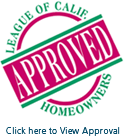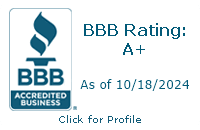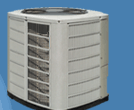1-800-291-3066 619-697-9824 Cell 619-701-0001
Frequently Asked Questions
Q. How often should I have my equipment serviced?
A. Heating and Air Conditioning equipment should be serviced at least
once a year. The best scenario is to have the heating system checked in the fall and the air conditioning checked in
the spring.
Q. Should I change to R-410A or R-22 refrigerant?
A. That is a great question and is an important question. The decision
you make could and most likely will affect your wallet, your comfort, and possibly the environment. Below are some
things you should know about the new refrigerant.
With R-22, the risk is, that it could become much more expensive or difficult to get when your
system needs to be repaired in a few years. R-22 will be phased out along with other ozone depleting chemicals, and
both supply and demand of this chemical will be significantly affected by current and upcoming regulations.
R-410A air conditioners and heat pumps are "state of the art" systems, and utilize the
most current technology available. The heart of every air conditioner or heat pump is the compressor and newer systems
are specifically designed to use R-410A refrigerant. They most often incorporate not only smaller, but also heavier-duty
"scroll-type" compressors that are quieter and operate more efficiently than older compressors that operate
on R-22.
Q. Considering energy costs, what is most effective in controlling home costs?
A. First, is to make sure that a home's current HVAC system is properly
maintained and adjusted. A change of habit that leads to lower temperature settings for the home in winter and higher
temperature settings in summer will greatly affect energy use. In addition, there are add-ons available for current
systems to make them more efficient, especially thermostats, humidifiers, and some zoning controls that have efficiency
implications.
If your current system is nearing the time for replacement, your efficiency options are expanded and
the potential for savings in comparison with an existing system can actually be quite dramatic. Should have any more
specific questions please call or e-mail us.
Q. Why does my system freeze up?
A. There are several factors, which can cause freezing of the system. Most
need to be corrected by a HVAC technical specialist. As a homeowner, check the filters first. Airflow restriction can
lead to freezing. First, thaw out the system by turning off the cooling and running the fan. If you have a heat pump
system, you can try turning the system to the heat mode until the ice has melted. If the problem recurs after checking
for air restrictions and getting the system thawed, calling for service is strongly recommended.
Q. I am concerned about the possibility of carbon monoxide, what should we do?
A. First, we would advise the home resident to keep heating equipment in
good repair, which is a function of regular inspection and maintenance. The homeowner should also check the furnace
chimney or vent and visually make sure that it is free of obstruction. Birds, squirrels, and other animal life sometimes
enter or nest in venting systems so watching for signs of this is important.
We also advise installing a carbon monoxide detector, as they are readily available at home supply
stores. Your personal vigilance in combination with regular system inspections, which we can offer plus using a carbon
monoxide monitor should be sufficient to give you full peace of mind concerning carbon monoxide in your home.
Q. Can I check out my system before calling for service?
A. Here are some simple suggestions you can check before contacting us.
Check The Emergency Switch. The emergency switch is usually located in your utility room
or near your furnace. It is normally a red plated switch. Make sure it is on. Sometimes it is located in a stairwell
or utility room. This switch supplies power to your air conditioner, furnace or sometimes other utilities. It is a
safety switch designed to cut power in case of an emergency.
Check the disconnect switches. This is the input from the power grid, (indoor and outdoor
if you have a split system). Make sure that circuit breakers are on or that fuses have not blown.
Check for sufficient airflow. Make sure air filters are clean and that supply-air and
return-air grilles are open and unobstructed.
Check the settings on your thermostat. If you want cooling, make sure the temperature control
selector is set below room temperature and the system switch is on the cool or auto position. If you want heat, make
sure the temperature control selector is set above room temperature and the switch is set to heat or auto. The fan
should be set at on for continuous blower operation or auto if you want the blower to function only while the unit
is operating.
Q. How do I know if a HVAC Contractor is reliable?
A. The absolute first qualification you want for your HVAC contractor is that
he is fully certified and licensed. In addition to certification, your HVAC contractor should be licensed, experienced, and
well trained. You will also want to ensure that your contractor is bonded and insured. Not only do these steps help to
protect your home, it is also a wise step to protect your financial investment.
As with any contractor, by checking the credentials of the HVAC contractor you have in mind, will
potentially prevent an unpleasant surprise down the road. You can readily find out all you need to know simply if you
ask the right questions.
Superior Quality & Old World Craftsmanship at Your Service



|





